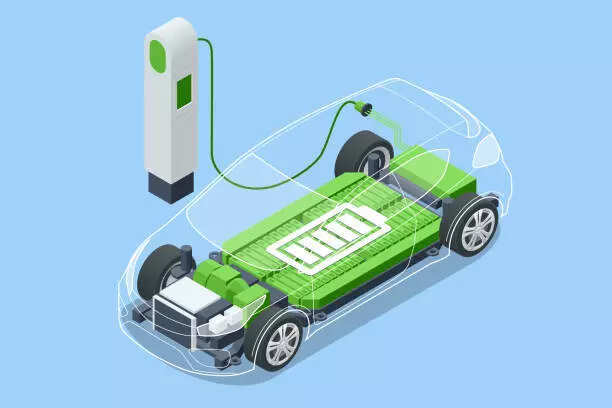EV Battery Recycling Explained: Myths, Facts, and the Future of Sustainability
Electric vehicles (EVs) are redefining the future of transportation, offering a cleaner alternative to fossil fuels. Yet, as EV adoption grows, one question looms large what happens to the massive batteries once they reach the end of their life? Battery recycling is at the heart of this discussion, surrounded by both optimism and misinformation. Here’s a look at the myths, facts, and future of EV battery recycling and sustainability.
Myth 1: EV Batteries Can’t Be Recycled
One of the most persistent misconceptions is that EV batteries end up in landfills. In reality, lithium-ion batteries are highly recyclable. Modern recycling techniques can recover up to 95% of key materials like lithium, cobalt, nickel, and manganese all of which can be reused in new batteries. Companies such as Redwood Materials, Li-Cycle, and CATL are already leading the way in large-scale recycling innovations.
Myth 2: Recycling EV Batteries Isn’t Sustainable
Some argue that recycling is too energy-intensive to be sustainable. While early recycling methods did consume significant energy, advancements in hydrometallurgy and direct recycling have drastically reduced emissions and waste. These processes allow materials to be reused without heavy refining, creating a true circular economy for EV batteries.
Fact: EV Batteries Have a Second Life
Even after they can no longer power cars efficiently, EV batteries retain up to 80% of their original capacity. Many find a “second life” in stationary energy storage supporting solar power systems, home batteries, or backup grids. This extends their usefulness and delays the recycling stage, enhancing overall sustainability.
Fact: Recycling Reduces Dependence on Mining
Mining for lithium, cobalt, and nickel has environmental and ethical implications. Recycling minimizes the need for new raw materials, conserving resources and reducing the carbon footprint associated with mining and transportation. As recycling infrastructure grows, it will help make EVs even greener.
The Future: Toward a Circular EV Ecosystem
The future of EV sustainability lies in a closed-loop system, where batteries are designed from the start to be easily disassembled, reused, and recycled. Automakers and governments are investing in this vision from EU regulations on mandatory recycling to innovative battery take-back programs by major car manufacturers.
Challenges Ahead
Despite progress, challenges remain. Recycling facilities are still limited, and global standards for safe and efficient processing are needed. The economic viability of recycling depends heavily on the recovery cost versus raw material prices. However, with growing demand and technological innovation, these hurdles are gradually being overcome.
EV battery recycling isn’t just possible it’s essential. Dispelling myths and embracing sustainable practices can turn battery waste into opportunity. As the industry evolves, recycling will play a pivotal role in ensuring electric mobility remains truly eco-friendly powering not just cars, but a cleaner, more responsible future.
Disclaimer: The information provided in this article is for educational purposes only. Readers should consult environmental experts or certified agencies for detailed guidance on EV battery recycling and sustainability practices.

Myth 1: EV Batteries Can’t Be Recycled
One of the most persistent misconceptions is that EV batteries end up in landfills. In reality, lithium-ion batteries are highly recyclable. Modern recycling techniques can recover up to 95% of key materials like lithium, cobalt, nickel, and manganese all of which can be reused in new batteries. Companies such as Redwood Materials, Li-Cycle, and CATL are already leading the way in large-scale recycling innovations. Myth 2: Recycling EV Batteries Isn’t Sustainable
Some argue that recycling is too energy-intensive to be sustainable. While early recycling methods did consume significant energy, advancements in hydrometallurgy and direct recycling have drastically reduced emissions and waste. These processes allow materials to be reused without heavy refining, creating a true circular economy for EV batteries.Fact: EV Batteries Have a Second Life
Even after they can no longer power cars efficiently, EV batteries retain up to 80% of their original capacity. Many find a “second life” in stationary energy storage supporting solar power systems, home batteries, or backup grids. This extends their usefulness and delays the recycling stage, enhancing overall sustainability. Fact: Recycling Reduces Dependence on Mining
Mining for lithium, cobalt, and nickel has environmental and ethical implications. Recycling minimizes the need for new raw materials, conserving resources and reducing the carbon footprint associated with mining and transportation. As recycling infrastructure grows, it will help make EVs even greener.The Future: Toward a Circular EV Ecosystem
The future of EV sustainability lies in a closed-loop system, where batteries are designed from the start to be easily disassembled, reused, and recycled. Automakers and governments are investing in this vision from EU regulations on mandatory recycling to innovative battery take-back programs by major car manufacturers. Challenges Ahead
Despite progress, challenges remain. Recycling facilities are still limited, and global standards for safe and efficient processing are needed. The economic viability of recycling depends heavily on the recovery cost versus raw material prices. However, with growing demand and technological innovation, these hurdles are gradually being overcome. EV battery recycling isn’t just possible it’s essential. Dispelling myths and embracing sustainable practices can turn battery waste into opportunity. As the industry evolves, recycling will play a pivotal role in ensuring electric mobility remains truly eco-friendly powering not just cars, but a cleaner, more responsible future.
Disclaimer: The information provided in this article is for educational purposes only. Readers should consult environmental experts or certified agencies for detailed guidance on EV battery recycling and sustainability practices.
Next Story